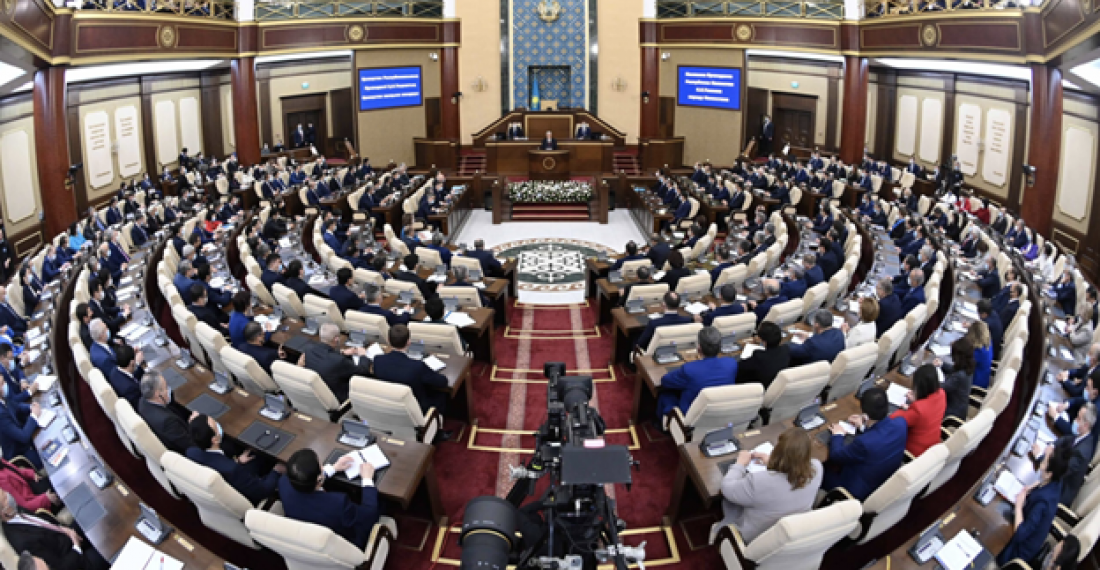Kazakhstan President, Kassym-Jomart Tokayev, on 16 March, addressed the nation for the first time since the January unrest. The President pledged vast political reforms and assured Parliament that Kazakhstan would withstand the impact of international sanctions imposed on Russia.
After the violent protests in January, President Tokayev dismissed the Prime Minister, Askar Mamin, and his cabinet. Tokayev promised political reforms and constitutional changes to switch from “superpresidential” rule to a presidential republic with a strong parliament. In a joint session of both Houses of Parliament (16 March), Tokayev laid out the details of his proposed political reforms.
Tokayev committed to making it easier to register new political parties, lowering the threshold from 20,000 signatures of support to 5,000 and reducing the minimum membership of regional branches and citizens' initiative groups for any new parties. Furthermore, Tokayev wants 30% of deputies to be elected in single-mandate seats to encourage independent candidates to run. Currently, 76 seats out of 107 are held by the ruling party, Amanat, formerly Nur Otan. The president also talked of the need to legislate on the use of social media in campaigns. Tokayev justified these reforms saying, “The rejection of excessive presidential powers will be an important factor that will ensure the irreversibility of political modernization.” Nevertheless, while the Majilis, the lower House of Parliament, is strengthened, the Senate is weakened. The Senate will be restricted to approving or rejecting legislation passed by the Majilis.
While Tokayev did not directly point the blame at his predecessor Nursultan Nazarbayev for the lack of political reforms, authorities have been taking steps to weaken the Nazarbayev family’s political power. Last weekend, Nazarbayev’s nephew was detained for involvement in “crimes undermining the security of the state”. Moreover, Nazarbayev’s brother was accused by the Agency for Financial Monitoring of “presenting a threat to the country’s economic security”.
The international sanctions directed at Russia, which has caused a drastic economic slowdown in Kazakhstan, was a key point during Tokayev’s speech. He said that the country “faces unprecedented … financial and economic difficulties”. The Kazakhstani Tenge has fallen in value significantly and Tokayev banned the export of hard currency, as well as gold and silver bullion this week. The president also stated that he will ensure food security through governmental supply of seeds, farming equipment, fertilizers, and fuel at affordable prices.






